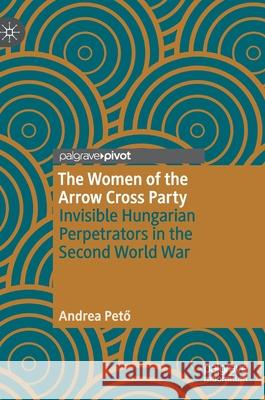The Women of the Arrow Cross Party: Invisible Hungarian Perpetrators in the Second World War » książka
topmenu
The Women of the Arrow Cross Party: Invisible Hungarian Perpetrators in the Second World War
ISBN-13: 9783030512248 / Angielski / Twarda / 2020 / 96 str.
The Women of the Arrow Cross Party: Invisible Hungarian Perpetrators in the Second World War
ISBN-13: 9783030512248 / Angielski / Twarda / 2020 / 96 str.
cena 241,50
(netto: 230,00 VAT: 5%)
Najniższa cena z 30 dni: 231,29
(netto: 230,00 VAT: 5%)
Najniższa cena z 30 dni: 231,29
Termin realizacji zamówienia:
ok. 22 dni roboczych
Bez gwarancji dostawy przed świętami
ok. 22 dni roboczych
Bez gwarancji dostawy przed świętami
Darmowa dostawa!
Kategorie BISAC:
Wydawca:
Palgrave Pivot
Język:
Angielski
ISBN-13:
9783030512248
Rok wydania:
2020
Wydanie:
2020
Ilość stron:
96
Waga:
0.28 kg
Wymiary:
21.01 x 14.81 x 0.79
Oprawa:
Twarda
Wolumenów:
01
Dodatkowe informacje:
Wydanie ilustrowane











